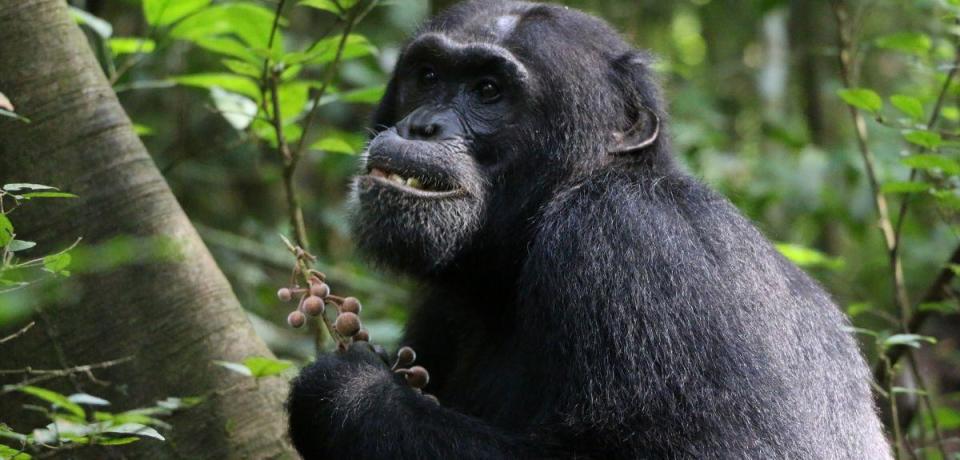London — Chimpanzees in the wild use medicinal plants to treat their injuries or illnesses, according to a study from the University of Oxford that researchers say is the most in-depth analysis to date.
Scientists monitored 51 chimpanzees from two communities in Uganda’s Budongo Central Forest Reserve to see how they behaved when they were healthy and when they were not. Groups of chimpanzees were already accustomed to the presence of humans.
In the beginning, an orangutan is seen using a medicinal plant to treat injuries
Scientists observed sick or injured animals eating certain plant products that were not part of their normal diet. They collected samples of those plants to test for pharmacological properties.
Analysts at the Neubrandenburg University of Applied Sciences in Germany examined the samples and found that 88% of them inhibited the growth of bacteria and 33% had anti-inflammatory properties.


A chimpanzee with an injured hand was observed foraging for and eating the leaves of a fern that was found to have potential anti-inflammatory effects. The scientists concluded that this may have helped reduce pain and swelling.
Another chimpanzee with a parasitic infection was seen consuming the bark of a cat thistle tree, which other members of her group had never been seen eating before. Testing showed that the bark also has anti-microbial and anti-inflammatory properties.
“To study self-medication in wild chimpanzees, you have to act like a detective—gathering multidisciplinary evidence to piece together a case,” said lead study author Dr. Elodie Freymann, with the School of Anthropology and Ethnographic Museum, University of Oxford. “After spending months in the field collecting behavioral data that led us to specific plant species, it was exciting to analyze the pharmacological results and find that many of these plants exhibited high levels of bioactivity.”
The study authors noted that with chronic inflammatory diseases and antibiotic-resistant bacteria becoming increasingly pressing global challenges for humans, medicinal plants used by chimpanzees could help develop valuable new medicines.
Clarence Thomas opposes decision to keep guns from domestic abusers
Supreme Court upholds gun ban for domestic abusers
Record heat will continue through the weekend for the Northeast
#Chimpanzees #seek #medicinal #plants #treat #illness #study #finds
Image Source : www.yahoo.com